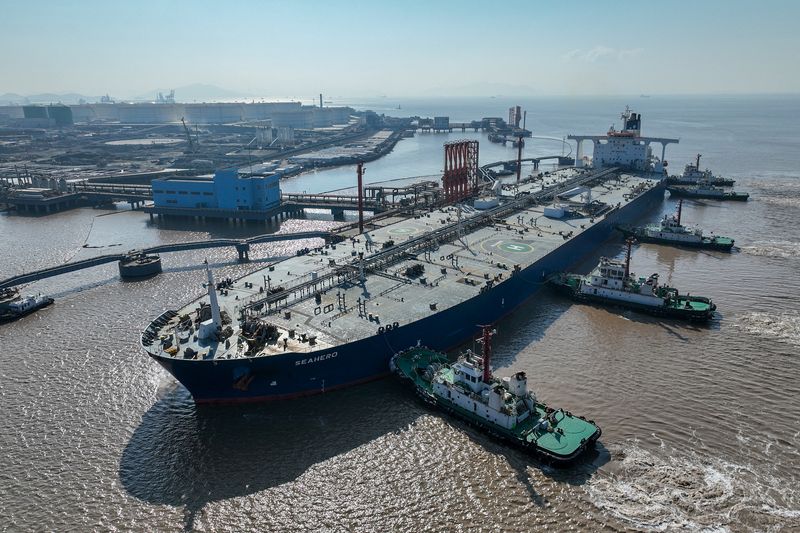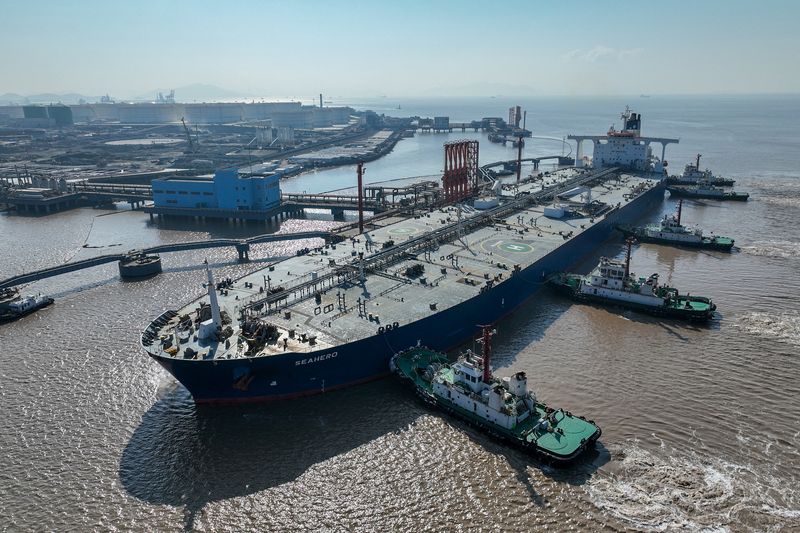
By Arathy Somasekhar and Trixie Yap
(Reuters) -Oil prices slipped on Tuesday on worries about a slowing Chinese economy crimping demand, though a growing consensus that the U.S. Federal Reserve will begin cutting its key interest rate as soon as September limited declines.
Brent futures fell 21 cents, or 0.25%, to $84.64 a barrel by 0408 GMT, while U.S. West Texas Intermediate (WTI) crude dropped 25 cents, or 0.31%, to $81.66.
IG market strategist Yeap Jun Rong said in an email the weaker run in Chinese economic data “cast some doubts on whether market participants are being overly optimistic around Chinese oil demand outlook”.
The world’s second-largest economy grew 4.7% in April-June, official data showed, its slowest since the first quarter of 2023 and missing a 5.1% forecast in a Reuters poll. It also slowed from the previous quarter’s 5.3% expansion, hamstrung by a protracted property downturn and job insecurity.
“Its 2Q GDP and retail sales figures had surprised on the downside by a significant margin, while anticipation for stronger stimulus measures at the Third Plenum may face the risks of disappointment,” Yeap added, referring to a key economic leadership meeting in Beijing this week.
In the U.S., Fed Chair Jerome Powell said on Monday the three U.S. inflation readings over the second quarter of this year “add somewhat to confidence” that the pace of price increases is returning to the central bank’s target in a sustainable fashion, remarks market participants interpreted as indicating a turn to interest rate cuts may not be far off.
Lower interest rates decrease the cost of borrowing, which can boost economic activity and oil demand.
Key U.S. economic data has started to show signs of softness, which could quicken the Fed’s decision on monetary policy easing, with cuts likely in September and December, according to CME FedWatch Tool, said OANDA senior market analyst Kelvin Wong in a client note.

On the supply side, Houthi fighters in Yemen – responding to Israel’s bombardment of Gaza – targeted three vessels, including an oil tanker, in the Red and Mediterranean seas with ballistic missiles, drones and booby-trapped boats, they said on Monday.
While crisis in the Middle East has not impacted supply, attacks on ships in the Red Sea has forced vessels to take longer routes, meaning oil remains on the water for longer.
This post is originally published on INVESTING.





